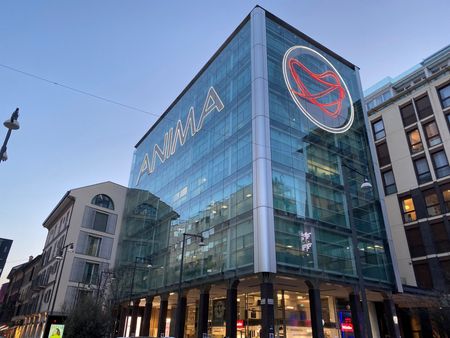By Krystal Hu
NEW YORK (Reuters) – President-elect Donald Trump could be the “president of this AI generation” as he will take office at a time when critical infrastructure to developing artificial general intelligence (AGI) is built out, OpenAI Chief Financial Officer Sarah Friar said.
“He’s going to be right there at the beginning of it, maybe even as things like AGI, we get there,” she said on Tuesday, referring to autonomous systems that surpass humans in most economically valuable tasks.
She also played down public threats to the ChatGPT maker from Elon Musk, one of Trump’s closest advisers.
Friar, in response to questions from Reuters Editor-in-Chief Alessandra Galloni during an interview at the Reuters NEXT conference in New York, said about Musk’s threats: “We trust him…as a competitor, (he) will put first the national interest and compete appropriately.”
Musk, who co-founded OpenAI, has publicly opposed OpenAI’s major corporate structure revamping to remove control of its nonprofit board. He now runs xAI, an OpenAI competitor, and has emerged as a close adviser in Trump’s transition team.
Trump has chosen him, along with former Republican presidential candidate and entrepreneur Vivek Ramaswamy, to head a task force aimed at slashing government spending and regulations.
Friar, who previously led social media firm Nextdoor and joined OpenAI six months ago as its first chief financial officer, said the company has seen huge demand for its video generation tool Sora, which was released this week.
Account creation has been suspended since then, and Friar did not offer a specific timeline for when it would resume.
“Some of it is just we need capacity, but a lot of it is also we want to be measured…it’s only available to a very small selection of people today, because we want to listen and learn,” said Friar, adding the company is taking a different release approach for Sora from ChatGPT.
“There are places where we will go a little slower to make sure that we are constantly moving safety first as well.”
Besides video generation, she said she also anticipates more AI agent products — software programs that perform tasks autonomously on behalf of users — can handle day-to-day tasks to be released in the new year, with foundation models gaining better reasoning capabilities.
“I think we are going to see a lot of motion next year around agents, and I think people are going to be surprised at how fast this technology comes at us,” she said.
The fast-growing startup is also working on developing a new dynamic with its largest investor and tech partner, Microsoft.
“We think about it … in terms of helping each other grow, but also recognizing that diversification is a good thing as well, in terms of growing the whole industry,” Friar added.
Despite the controversy over its governance restructuring and the recent exodus of executives, OpenAI continues to experience rapid expansion, she said.
Friar said the company sees a “re-acceleration” in ChatGPT user growth, which surged to 300 million weekly active users from 200 million in August this year, attributing it to the launch of new reasoning models such as o1.
(Reporting by Krystal Hu in New York; Editing by Raju Gopalakrishnan and Jamie Freed)











